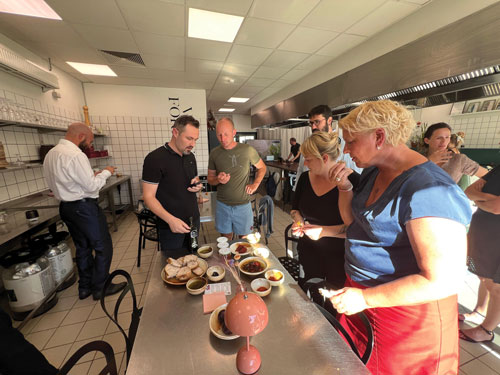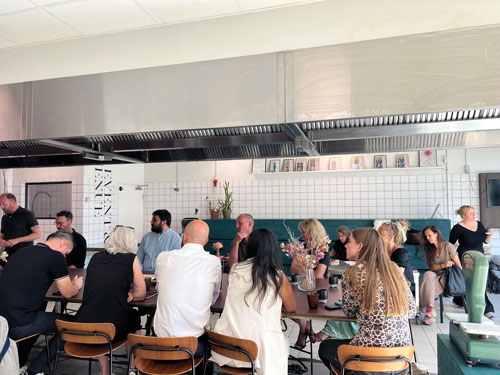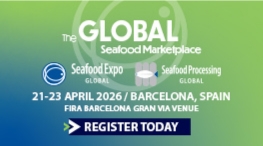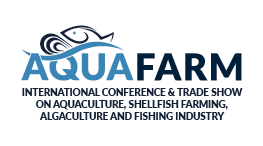This article was featured in Eurofish Magazine 5 2025.
Procuring, preparing, and consuming food play an important role in communities. These activities can contribute to solving economic, environmental, and social challenges in different layers of a society.
On 20 August 2025, Eurofish International Organisation took part in A Seat at the Table, an international conference hosted at the Kitchen Collective in Copenhagen. Organised under the EU-supported initiative The Renaissance of Local Food, the event brought together people working across food, culture, and regional development to explore how culinary traditions can strengthen communities and support more sustainable futures.
What food means for a society
The programme featured five focused sessions that invited reflection on how food shapes society, from its role in reinforcing cultural identity to its capacity to support economic opportunities and ecological resilience. Speakers from across Europe, including Greenland, Åland, Denmark, Italy, and Turkey, offered regional perspectives grounded in lived practice and research. The opening panel explored how traditional foodways contribute to identity and place-making. One of the highlights came from Inunnguaq Hegelund, who described the adaptive nature of Greenlandic food culture. In the Arctic, food is shaped not only by tradition but also by necessity. Drying, fermenting, and freezing are essential preservation methods, allowing communities to store and share food in a region where seasons are extreme and access to fresh imports limited.

The Renaissance of Local Food conference also featured local foods for participants to sample.
Fishing and small-scale hunting continue to play a crucial role in food sovereignty and nutrition, particularly in coastal settlements. But the Arctic environment is changing. Rising temperatures are altering the range and abundance of fish species, which presents challenges for younger generations seeking to maintain traditional knowledge while adapting to ecological disruption.
Food as tourism, community, and governance
Other sessions focused on food’s wider impact in society. The panel on food and community examined how shared meals can help reduce social isolation and foster a sense of belonging. Local initiatives in Denmark, including those led by Mia Maja -Hansson and Lennart Lajboschitz, showed how communal dining experiences can be designed to welcome diverse groups, bringing neighbours, newcomers, and vulnerable individuals to the same table. The role of food in tourism and local economies was addressed in a separate session. From Åland, Viktor Eriksson shared examples of how regional food experiences – such as seafood tasting tours and fish-smoking workshops – support small producers while promoting regional identity. The discussion highlighted the potential of food not only to feed but to teach, connect, and create value in rural and coastal areas. The fourth session turned to the policy dimension, with reflections on how municipalities and institutions can support alternative food networks. Speakers called for better integration of food policies into regional planning, particularly where it concerns public procurement, education, and support for small-scale producers.
Transforming food systems in response to pressures
The final session focused on the idea of transformation, how food systems must evolve in response to environmental, social, and economic challenges. Speakers advocated for a shift away from highly centralised, resource-intensive models and towards approaches that are more inclusive, decentralised, and circular.
Inclusive food systems prioritise access and participation. This means recognising the needs of different communities, including low-income households, minority food cultures, and remote producers. For example, some initiatives in Copenhagen have created community kitchens that offer affordable meals while employing local residents, blending food access with social entrepreneurship. Decentralised systems move food production and decision-making closer to the communities they serve. A farm-to-school programme in Åland, for instance, connects small fisheries and vegetable growers with local schools, ensuring children receive fresh, local food while supporting micro-enterprises in the area. Circularity, meanwhile, refers to designing food systems that minimise waste and regenerate natural resources. This could mean composting food scraps to enrich local soil or using byproducts from fish processing in agricultural feed, practices that align ecological thinking with everyday routines.
Taken together, these ideas point towards food systems that are more resilient because they are more responsive, rooted in local knowledge, built around relationships, and designed to function within ecological limits.
Eurofish’s role: listening and learning
Eurofish attended the event to engage with new perspectives and consider how fisheries and aquaculture fit into broader food system transitions. Eurofish’s participation reflected a growing recognition that seafood is more than a commodity: it is a cultural and ecological resource that must be understood in context. In regions where fishing is still a way of life, the stories shared during A Seat at the Table underscore the importance of integrating seafood into local food strategies. Preserving marine food traditions, supporting artisanal fishers, and linking seafood to education, tourism, and health are all part of this wider transformation.
The conference concluded with a strong sense of shared purpose. As The Renaissance of Local Food continues, it offers not just a platform for discussion, but a laboratory for imagining food systems that nourish both people and places.
Ixai Salvo, Eurofish,
ixai@eurofish.dk









